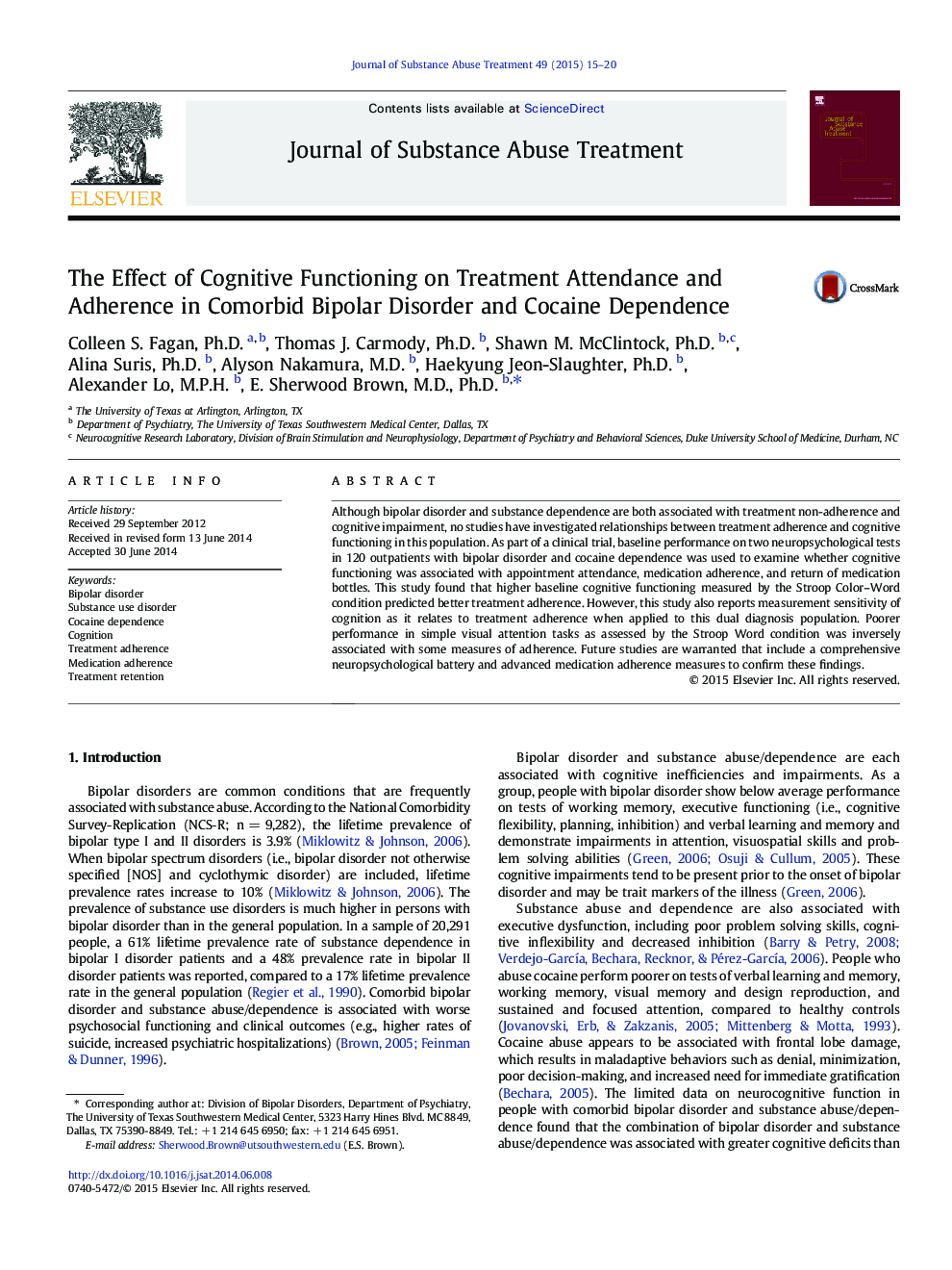| کد مقاله | کد نشریه | سال انتشار | مقاله انگلیسی | نسخه تمام متن |
|---|---|---|---|---|
| 328101 | 543078 | 2015 | 6 صفحه PDF | دانلود رایگان |
• We examined baseline cognition as a predictor of treatment adherence in a clinical trial of patients with bipolar disorder and cocaine dependence.
• The cognitive domains examined included memory and executive functioning.
• Some cognitive tasks were associated with treatment adherence.
Although bipolar disorder and substance dependence are both associated with treatment non-adherence and cognitive impairment, no studies have investigated relationships between treatment adherence and cognitive functioning in this population. As part of a clinical trial, baseline performance on two neuropsychological tests in 120 outpatients with bipolar disorder and cocaine dependence was used to examine whether cognitive functioning was associated with appointment attendance, medication adherence, and return of medication bottles. This study found that higher baseline cognitive functioning measured by the Stroop Color–Word condition predicted better treatment adherence. However, this study also reports measurement sensitivity of cognition as it relates to treatment adherence when applied to this dual diagnosis population. Poorer performance in simple visual attention tasks as assessed by the Stroop Word condition was inversely associated with some measures of adherence. Future studies are warranted that include a comprehensive neuropsychological battery and advanced medication adherence measures to confirm these findings.
Journal: Journal of Substance Abuse Treatment - Volume 49, February 2015, Pages 15–20
